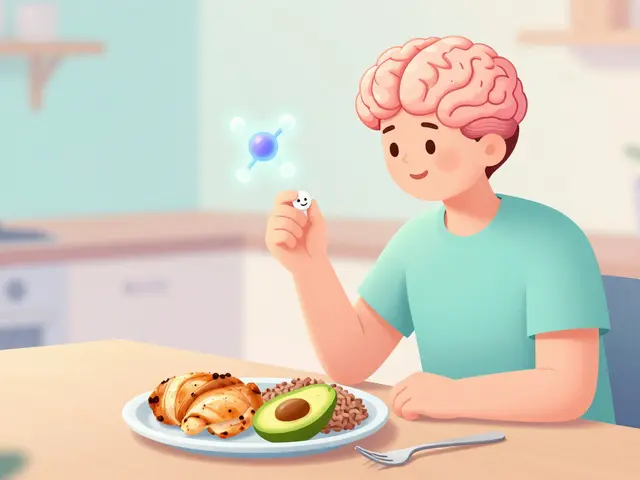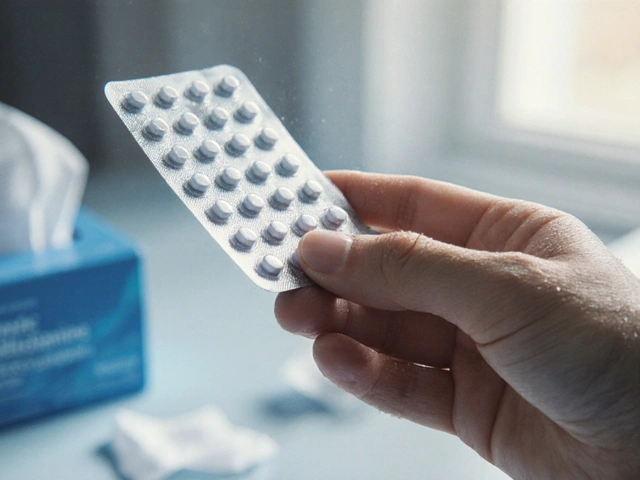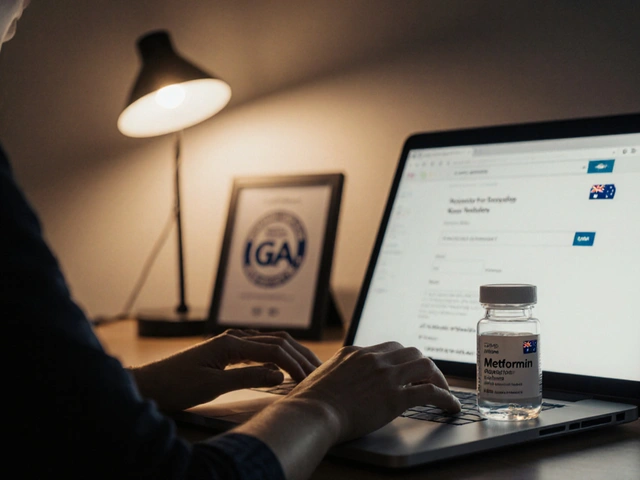Vilazodone and Diarrhea: How to Manage GI Side Effects When Starting Antidepressant Treatment
January 26 2026Anxiety: Practical Help, Treatments & Safe Medicine Options
Anxiety can show up as a racing mind, tight chest, or a nagging sense that something bad is coming. You don’t have to wait for it to pass. Small, practical steps often cut the worst moments in half and keep things from spiraling.
Quick relief you can use now
When anxiety spikes, try a simple breathing trick: breathe in for four, hold two, out for six. Repeat until your heart slows. Add the 5-4-3-2-1 grounding trick: name five things you see, four you can touch, three you hear, two you smell, one you taste. It shifts attention away from worry fast.
Move your body. A 10-minute brisk walk or marching on the spot releases tension and calms the nervous system. Cut or delay caffeine if you’re anxious often; caffeine can amplify jitters. Sleep matters too — aim for a routine: same bedtime, dark room, no screens 30 minutes before bed.
Longer-term fixes that actually work
Cognitive Behavioral Therapy (CBT) is the most used talk therapy for anxiety. It teaches you to spot the thoughts that fuel panic and change them. Exposure therapy helps with specific fears by practicing safe, controlled steps toward what scares you. Group therapy or online CBT programs can be handy if you prefer a lower-cost option.
Medication is another tool. Doctors often start with SSRIs like sertraline or fluoxetine, or SNRIs for some people. Buspirone is an option for generalized anxiety. Benzodiazepines work fast but are for short-term use only because of dependence risk. Beta-blockers can help for performance anxiety. Every medicine has trade-offs — discuss side effects and monitoring with your prescriber.
If you’re already using meds or thinking about them, be careful buying online. Use pharmacies that show a license and require a prescription. Look for PharmacyChecker or CIPA seals, a real phone number, secure checkout (https), and clear return policies. Avoid sites that sell prescription drugs without asking for a prescription or that offer unreal discounts. Read recent reviews and, when in doubt, call your doctor first.
Watch for warning signs: if anxiety makes you stop daily activities, or you have thoughts of harming yourself, contact a clinician or emergency services now. If medications make mood worse or you feel unsafe, seek immediate help.
Finally, small habits add up: regular exercise, a predictable sleep schedule, less caffeine, scheduled worry time, and regular check-ins with a therapist or doctor. Anxiety isn’t a weakness — it’s a common condition with clear ways to feel better. Start with one change today and build from there.
 1 Jul
1 Jul
Erosive Esophagitis and Anxiety: How They're Connected and What to Do
In my recent exploration, I've discovered a fascinating link between erosive esophagitis, a condition that damages the esophagus, and anxiety. It turns out that chronic stress and anxiety can increase the risk of developing this uncomfortable gastrointestinal condition. This is primarily due to the fact that anxiety can lead to behaviors like overeating or unhealthy food choices, which can subsequently provoke acid reflux, a major cause of erosive esophagitis. It's important to manage anxiety through techniques like mindfulness, therapy, and regular exercise, in addition to seeking treatment for esophagitis. A healthy mind and body are interconnected, and taking care of both is crucial.
Read More...




